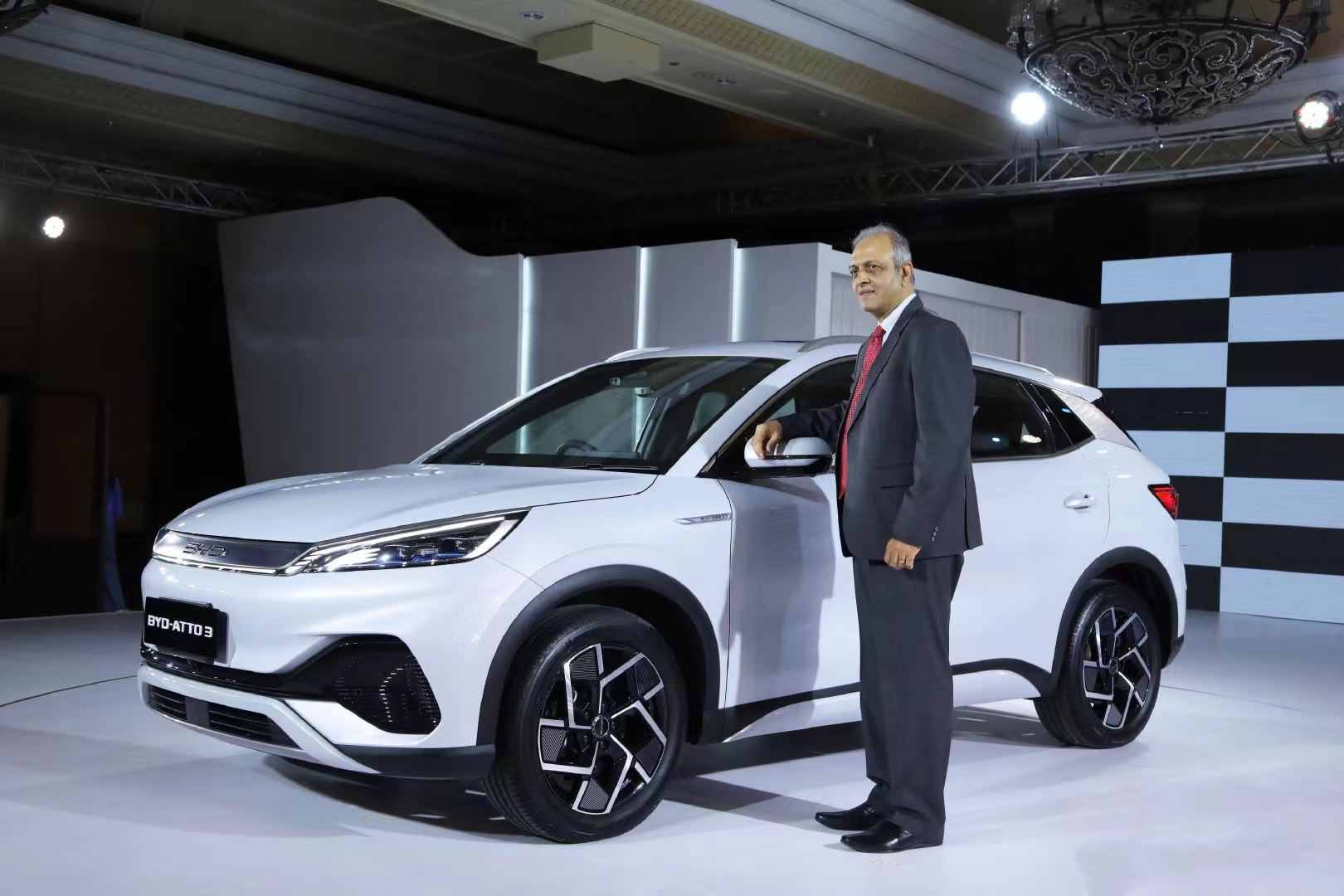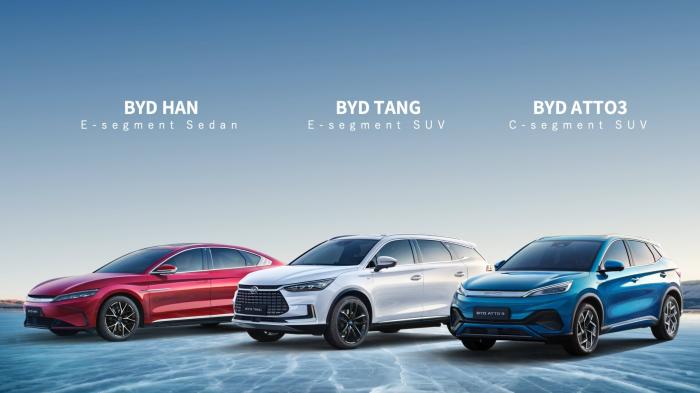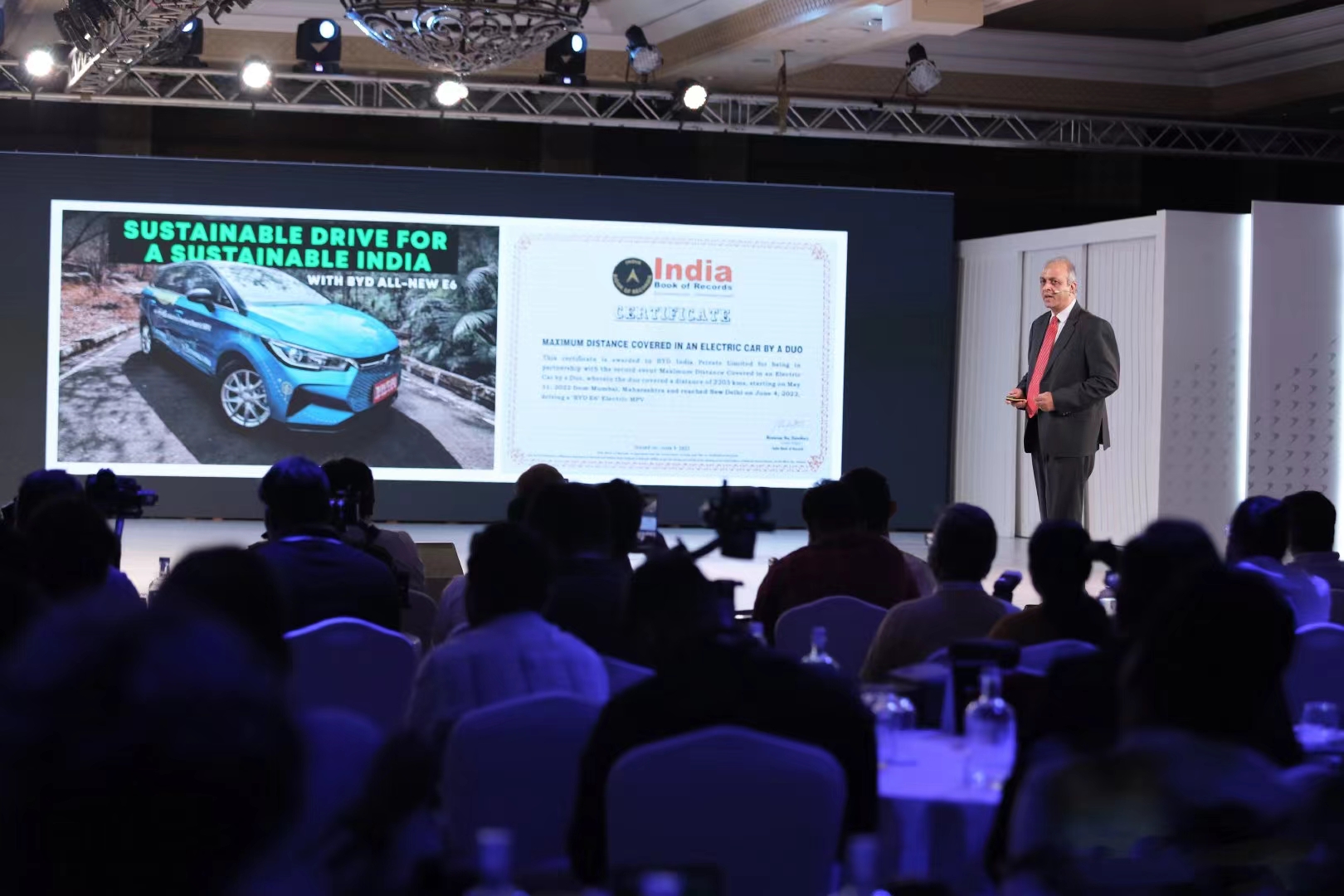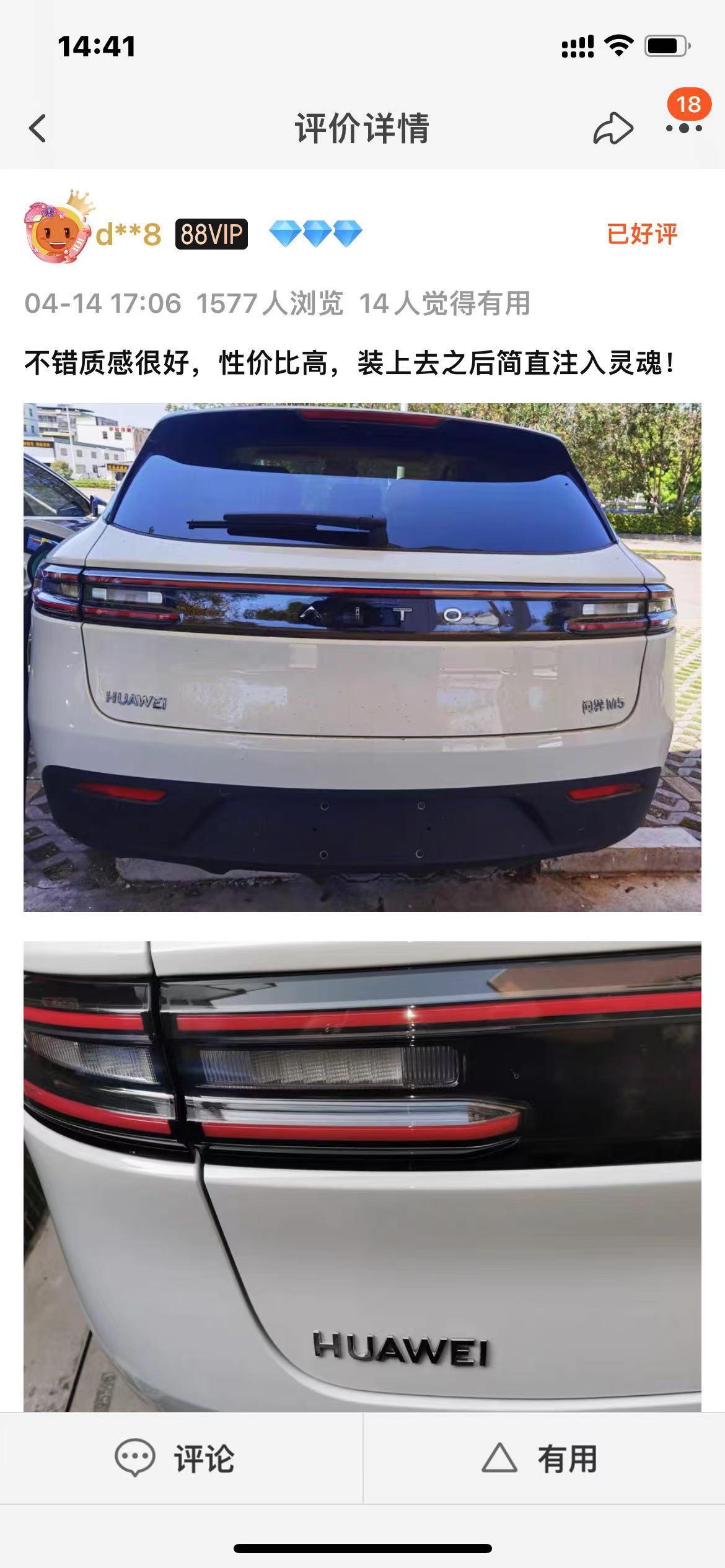In addition to Weibo, there is also WeChat
Please pay attention

WeChat public account
AutoBeta


2024-11-23 Update From: AutoBeta autobeta NAV: AutoBeta > News >
Share
AutoBeta(AutoBeta.net)10/13 Report--
BYD is accelerating its expansion around the world. On the evening of October 12, BYD confirmed the authenticity of the news to the media that BYD India was considering building a second factory in the Indian market.

The relevant official of BYD revealed that BYD India has considered building a second factory in India and will announce the relevant news in due course. At present, BYD has announced its entry into the Indian passenger car market. On October 12, BYD held a brand launch in New Delhi, India, at the same time, it launched the first high-end pure electric ATTO 3 (domestic "BYD yuan PLUS"). The first batch of 500 BYD cars will be delivered from January 2023.

According to the concern of the automobile industry, this is not the first time that BYD has laid out the Indian auto market. It has been 15 years since BYD entered the Indian market. In 2007, BYD entered the Indian market and set up a branch. According to statistics, so far, BYD has invested more than 200 million US dollars in the Indian market, of which BYD has a factory in India, which is mainly used to produce BYD e6. In early February, BYD delivered its first 30 e6s in India at a price of 2.96 million rupees (250000 yuan).
Since BYD was fully transformed into a new energy car company in April, its sales have grown by leaps and bounds and gradually become China's new energy leader, surpassing North and South Volkswagen to win the top spot in the passenger car market for three consecutive months. Against the backdrop of soaring sales, BYD continues to speed up its global business. Before entering the Indian market, BYD has entered markets such as Norway, New Zealand, Singapore, Brazil, Costa Rica and Colombia. On July 21 this year, BYD announced its official entry into the Japanese passenger car market and simultaneously unveiled three pure electric models: yuan PLUS, Dolphin and Seal. Yuan PLUS is expected to go on sale in January 2023, while Dolphin and Seal will go on sale in mid and late 2023 respectively. On August 1, BYD announced a partnership with European dealer group Hedin Mobility to provide new energy vehicles for the Swedish and German markets. On September 8th, BYD signed a land subscription and plant agreement with WHA Weihua Group Volkswagen Co., Ltd., the first overseas passenger car factory officially landed in Thailand, and is expected to produce 150000 cars a year there from 2024; on September 28th, BYD held an online launch of new energy passenger vehicles in Europe and launched three new models of Chinese, Tang and Yuan PLUS.

It is important to note that the Indian market is more complex than other countries. Previously, car companies, including Ford, Toyota, Honda, General Motors and Volkswagen, have performed very mediocre after entering the Indian market, among which, due to years of losses, overcapacity and less-than-expected growth in the Indian auto market, Ford India announced the closure of the plant in September last year, while General Motors announced that it would withdraw from the Indian market and stop selling cars in the Indian market in 2017.
In this context, Chinese car companies entered the Indian market on a large scale, and the first one to enter the Indian market was the Mingjue brand of SAIC Group. Since then, Great Wall Motor, Foton Motor and Changan Automobile have all announced their entry into the Indian market. After GM withdrew from its Indonesian plant, the plant was also idle. At the end of 2017, GM sold one of its car plants, Harrol, Gujarat, to SAIC, which has since produced and sold its MG in India. In January 2020, GM sold another car plant, the Talegang Plant in India, to Great Wall, but as mentioned above, "the Indian market is more complex than other countries". Great Wall's layout in India has not been smooth. Great Wall had planned to invest $1 billion in India to buy GM's Talegang plant in India, which had been scheduled to be completed in the second half of 2020, but has been unable to start the project due to uncontrollable external factors. In July 2022, Great Wall and GM signed an agreement to buy GM's plant in Tarigang, India. Although the project was communicated and negotiated with the Indian government, it was not approved by the local government and relevant regulatory authorities. The two sides finally decided to terminate the two-year-old deal that had been unable to make any new progress.

India, as the world's fourth largest car market, according to the latest data from the Association of Indian Automobile Manufacturers (SIAM), the Indian car market grew by more than 12% from 2000 (750000) to 2010 (1.87 million), but the industry grew by only 3% from 2010 to 2020 (2.43 million). Cumulative passenger car sales in India's domestic market reached 3.08 million in 2021, an increase of 27% over the same period last year. People in the domestic industry believe that "although the Indian automobile market is small, it is an important base for radiating South Asia, with an average annual export of about 650000 vehicles in recent years," while Chinese car companies entering the Indian market may have taken a fancy to India's potential economic growth and export prospects.
The latest figures show that domestic sales in the Indian passenger car market were 148380 in September, up 135.1 per cent from 63111 in the same period last year. Analysts had previously predicted that India would overtake Japan to become the world's third-largest car market after China and the United States by 2025.
With the recovery of the supply chain and the strong consumer demand, the Indian market is widely favored, and BYD's layout of the Indian auto market may also take a fancy to this business opportunity. In response to BYD's follow-up performance after entering the Indian market, Sanjay Gopalakrishnan, senior vice president of BYD India, said that BYD plans to account for 40% of the Indian electric car market by 2030. BYD's plant capacity in India is planned to expand from the current 10, 000 vehicles to 15000 vehicles a year, and BYD will sell 15000 ATTO 3 and e6 vehicles in the Indian market by 2030. So far, BYD has set up 24 dealer showrooms in 21 Indian cities, and plans to reach 53 by 2023, with new production bases expected to be established in the future.

On October 3, BYD released production and sales data for September 2022, which showed that in September 2022, BYD sold 201259 new energy vehicles, an increase of 183.1 percent over the same period last year, and 200973 new energy passenger vehicles, an increase of 187.0 percent over the same period last year. For the first time, sales exceeded 200000. As domestic sales continue to be booming and overseas layout continues to advance, BYD has raised its annual sales target for 2023 to 4 million vehicles.
Welcome to subscribe to the WeChat public account "Automotive Industry Focus" to get the first-hand insider information on the automotive industry and talk about things in the automotive circle. Welcome to break the news! WeChat ID autoWechat
Views: 0
*The comments in the above article only represent the author's personal views and do not represent the views and positions of this website. If you have more insights, please feel free to contribute and share.











© 2024 AutoBeta.Net Tiger Media Company. All rights reserved.